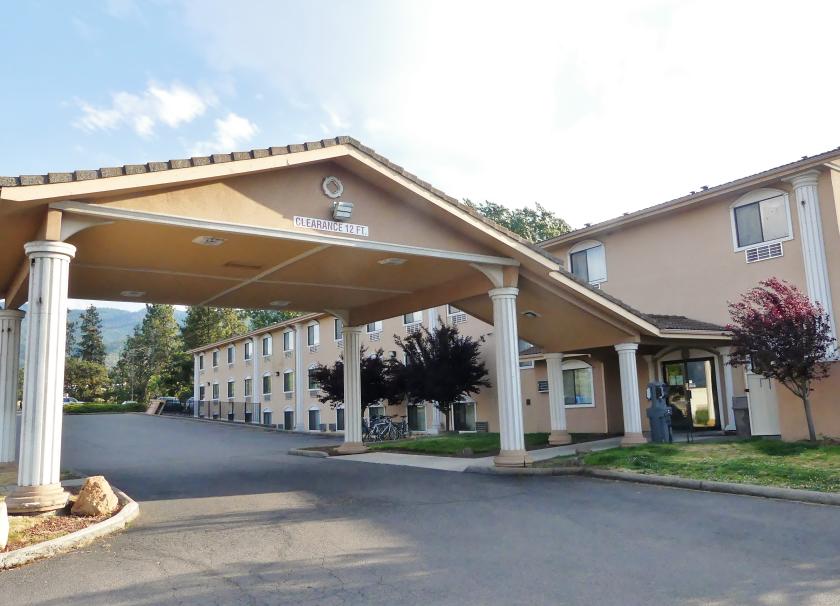
February's Change for Good partner: OHRA
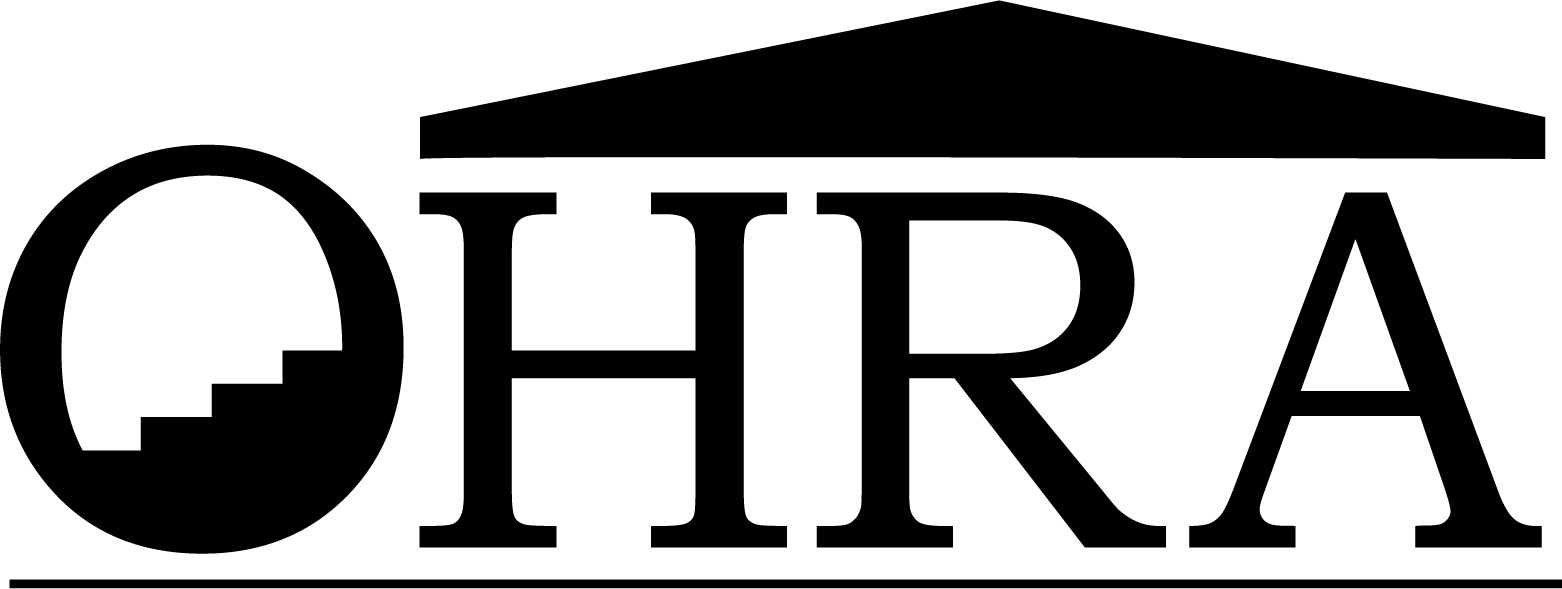
OHRA helps low-income people build better lives through access to social service resources. By helping
people move from crisis to stability, OHRA builds more capable individuals, stronger families, and a
better community. We have three core programs:
OHRA Community Resource Center (OCRC) is the only walk-in resource center serving Jackson
County, offering these basic services:
- Housing Match helps unhoused people find housing and resources to become stable and housing threatened people to stay housed by providing short-term rent or utilities assistance and other resources.
- Job Match gives job search assistance to help people find employment.
- Essential Services are resources that enable guests to overcome barriers to moving forward, including but not limited to assistance to purchase critical items such as a birth certificate or Oregon ID; help applying for benefits and navigating systems including e.g. OHP or Social Security; and, access to internet, telephone and U.S. mail.
.jpg)
The OHRA Emergency Shelter (OES) is a year-round, non-congregate facility providing emergency
housing and meals to vulnerable unhoused people for up to 6-months. During their stay, guests have
access to support navigation services where trauma-informed staff work alongside guests to help them
develop a housing plan, gain employment, or access services to support long-term health and well-being.
The OHRA Laundry and Shower Trailer (OLST) where unhoused people can access basic hygiene
services.
OHRA’s staff of Resource Navigators are the heart of every program offered at the Center, placing the
guest at the center of our service, and working alongside them with a trauma-informed approach. By
building relationships rooted in trust, OHRA Resource Navigators help identify and meet the most
pressing needs of guests. Our goal is to be a “one-stop shop” where a guest can find everything they need to move from crisis to stability.
OHRA stayed open continuously during the pandemic and, after evacuating on September 8, reopened the
next day to serve people devastated by the Almeda Fire. When people have nowhere else to turn to,
OHRA is there as a lifeline for the people in our community who need us most. We certainly focus on our
unhoused guests, but we are also the only resource in town who helps people who are on the verge of
homelessness stay housed and avoid eviction. OHRA has the only walk in resource center in Jackson
County.
We pride ourselves on having a diverse staff, board of directors, and advisory council. At every level of
OHRA leadership people of color, LGBTQ+, indigenous people, and people with lived experience of
poverty and homelessness are represented. We are also proud to be part of a network of community
partners serving our area seeking to improve the lives of those we serve.
Guest Stories with OHRA
Sheila's Story
“If it hadn’t been for OHRA, I would still be living on the street. But because of OHRA, I had a bed, a
room, a foundation,” says Sheila Chaney, a former Shelter guest. That foundation, combined with
Sheila’s own motivation and determination, enabled her to find the tools to build a better life. As a result,
Sheila now has her own permanent home after five years of homelessness.
“When you are on the street you just live minute to minute,” Sheila explains. The Shelter, she says,
changed that. “OHRA gave me a home, so I wasn’t on the street freezing and getting frost bite.” Instead,
she could focus on improving her life.
Chaney, a former OHRA shelter guest, now has her own apartment. She is nearly giddy when she talks
about it and quickly credits the OHRA Shelter, the OHRA resource navigator, her church, Jackson
County Housing Authority, United Way, and St. Vincent de Paul for her new home. But clearly, the
deciding factor in her ability to build a new life was her own determination.
Sheila says her life went off the rails in 2018 due to a domestic tragedy that resulted in her losing custody
of her two youngest children as well as her home. She was living on the street in California when she
first sought help with drug addiction and began her journey to sobriety. Things appeared to be improving
when a childhood friend in Ashland suggested she move in with her. For reasons Sheila does not
understand, her friend assaulted her, and she ended up on the street again.
“I had no family. No friends. No support system.” But despite her situation, Sheila remained determined
to remain drug-free. “I was proud of being in control of my own sobriety.” She was working with On
Track, a Medford-based drug treatment center, to stay clear of drugs, and they told her about OHRA.
She applied and moved into the OHRA Center Shelter.
Once she was in the OHRA shelter, Sheila says, “I hit the ground running. I did not have a car, so I had
to walk everywhere and one day I saw a sign for an apartment for rent.” Sheila applied instantly before
she even had a HUD appointment or voucher because she knew apartments were scarce. She thought her
income would cover the rent. But to be sure, she also applied for an Emergency Housing Voucher, which
she eventually received.
Every day she called the rental agent and owner about the apartment. When the first person in line failed
to claim the apartment, Sheila moved to the front of the line. But the rental deposit presented a huge
obstacle. Sheila contacted her church about potential resources and to her delight they gave her enough to
cover the deposit and some rent.
Sheila glows when she talks about her new home.
“I have a new life now. I have a beautiful home,” she says gleefully. “OHRA gave me hope. My church
gave me faith. It’s incredible.”
“My Coach, My Teammate, My Umpire”
OHRA meticulously tracks and counts the services it provides. But sometimes it is hard to quantify what
may be the most vital service – being a companion on a guest’s road to recovery.
Susan (not her real name) is a guest whose story and note of appreciation to OHRA stressed the value of
having someone to lean on when you hit a rough patch.
Susan originally came to OHRA nearly two years ago. She had been working with an OHRA partner, St.
Vincent de Paul, on the problem of stable housing, but then Susan’s car broke down and she lost both
transportation and a potential (although not ideal) shelter. Lead Navigator Tina Stevens worked with
Susan and, with other OHRA partners, raised money for car repairs. However, that did not end the
problem of her unsafe housing (coach surfing and even sheltering in a former shop). Eventually, Susan
moved into the OHRA Center as a stop gap. Tina worked with her to get a HUD and then the housing
authority found a landlord who would take the voucher. Here is part of Susan’s note to OHRA, United
Way and St. Vincent de Paul.
“This has been a very long journey. But I wasn’t alone on my path. I had you, Tina. You had my back
through every single step. I don’t know what I would have done without you rooting me on, being my
coach, my teammate and my umpire.”
Susan talked about moving out of her OHRA Center room for its next guest. “This was a wonderful place
to be. You are all amazing people.”
A Couple's Story: Rapid Rehousing Stops Crisis from Snowballing
John and Judy's situation was bleak-- they were living in a motel for two months after losing their jobs
and home. Room costs were eating up their savings. John’s chronic disability made sleeping in the car
impossible. OHRA’s navigator quickly recognized the couple qualified for COVID Rapid Relief
Rehousing funds. OHRA’s navigator found them an apartment just nine days after meeting them.
When OHRA’s navigator told them “I can get you housed right now,” Judy fell to her knees and cried.
Since then, John has secured disability benefits. Judy continues to look for work, but in her words “a
world of worry has been lifted.”
A Family's Story: Hope When Everything Was Lost
A family of agricultural workers came into the Resource Center because COVID had taken their jobs, and
the Almeda fire had taken their home. OHRA’s navigator immediately contacted a community partner
that found a rental for the family. OHRA connected the family with resources for a deposit and several
months’ rent. In a follow-up visit OHRA was also able to secure utility assistance while they got on their
feet.
The parents are now employed and deeply grateful for the help during an unthinkable crisis. With his
parents stable, the oldest son was able to stay in school and graduate from college.
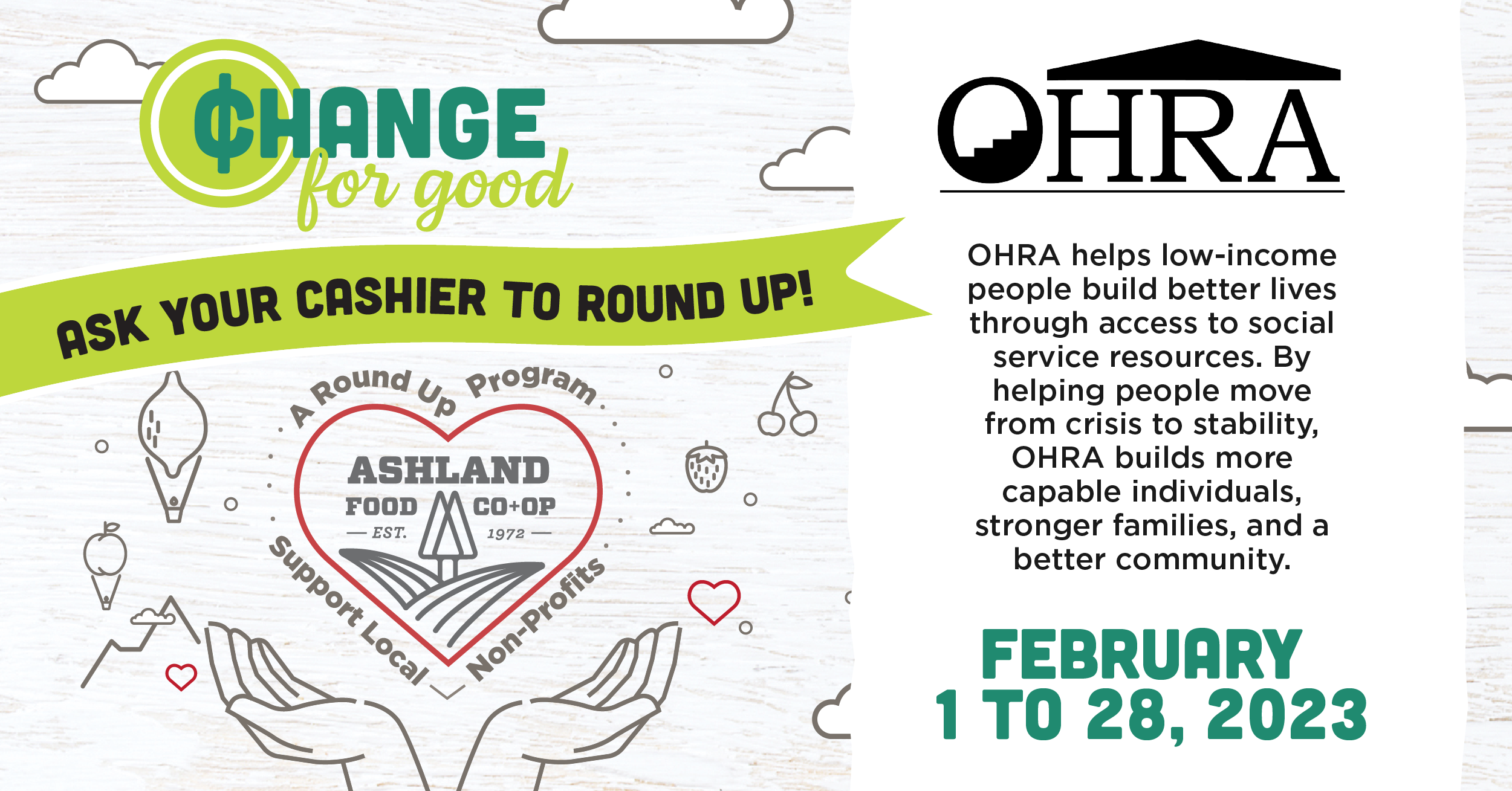
More Co-op News
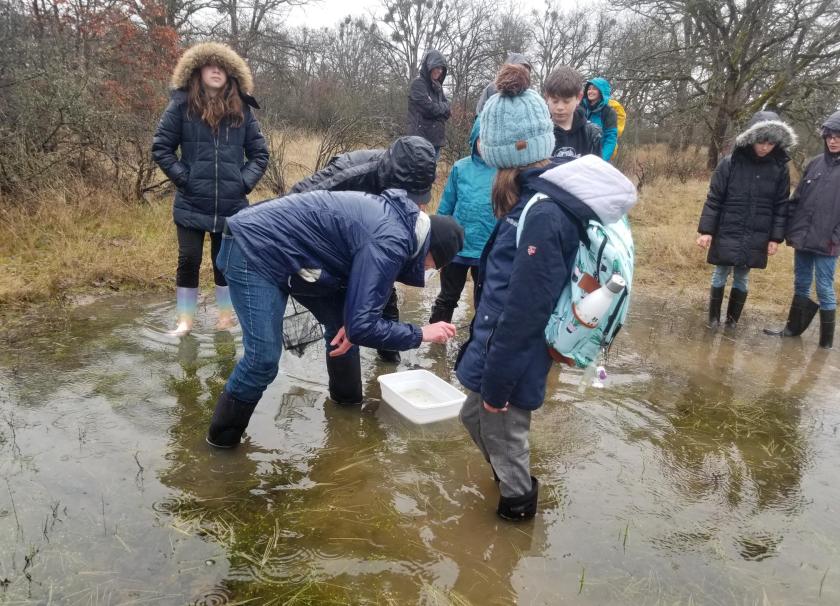
June 2023 Change for Good Partner: Southern Oregon Land Conservancy
The Ashland Food Co-op is teaming up with the Southern Oregon Land Conservancy (SOLC) as its Change for Good partner for this month. This collaboration aims to support SOLC's mission of conserving Southern Oregon's natural landscapes and habitats.

Bicycle Benefits
Here at the Co-op we are on a mission to promote healthy lifestyles and sustainable practices within our community.
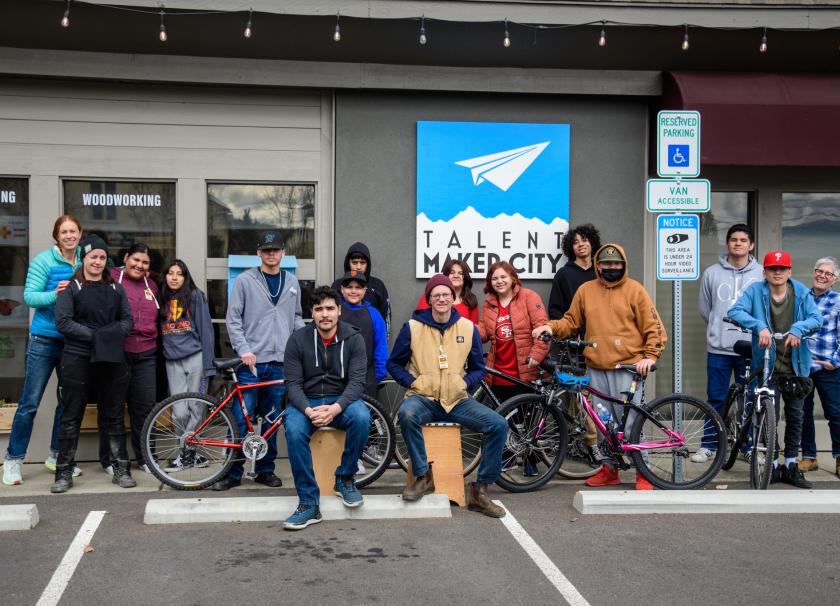
May 2023 Change for Good Partner: Talent Maker City
Talent Maker City's mission is to build a more connected, prosperous, and resilient community through hands-on creativity and innovative STEAM-based learning. (STEAM = Science, Technology, Engineering, Art, & Math.) They have a bustling Makerspace facility, brimming with creative energy in downtown Talent offering hands-on STEAM-based workshops and programming for curious minds of all ages!
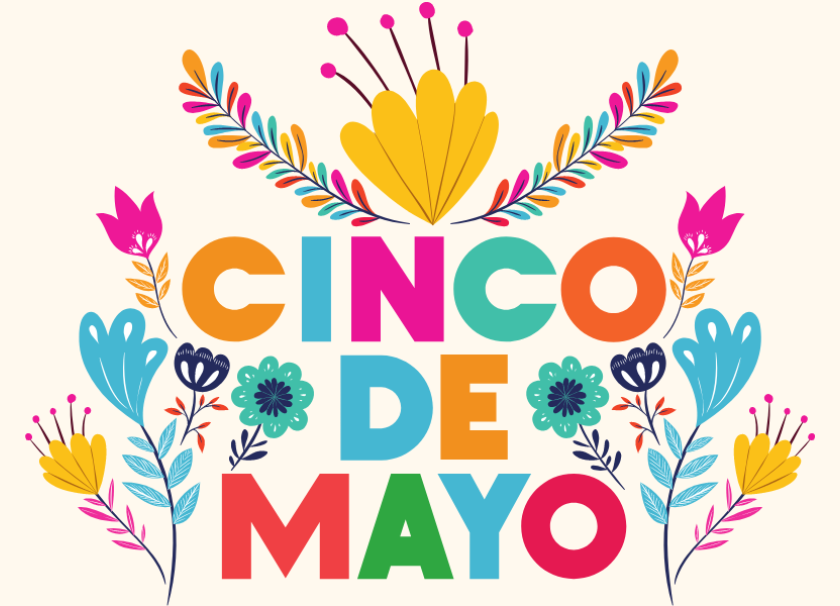
Celebrating Cinco de Mayo
We're always learning and growing here at the Co-op and with the approach of Cinco de Mayo we thought we would share a (very) brief history lesson and some thoughts on celebrating this holiday here in the United States.
April 2023 Change for Good Partner: Pollinator Project Rogue Valley
From Kristina Lefever, Pollinator Project Rogue Valley President
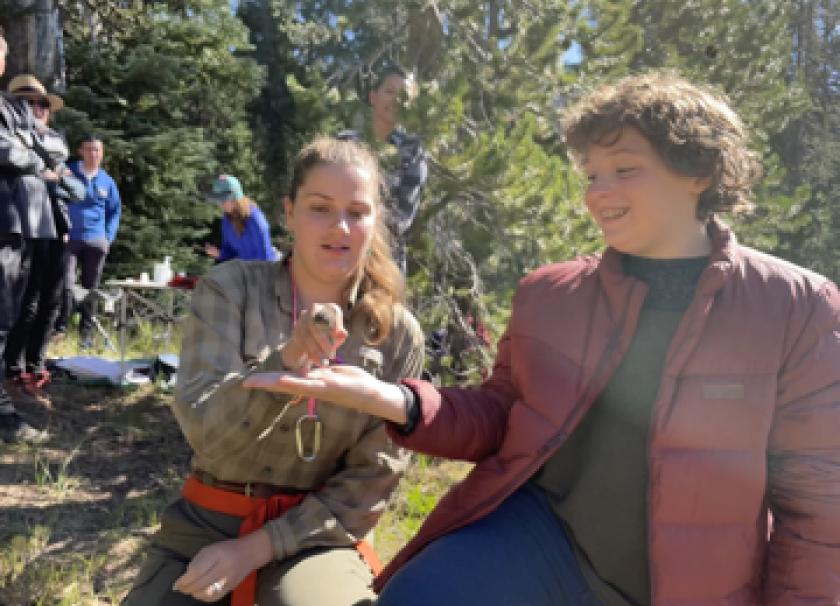
March 2023 Change for Good: Klamath Bird Observatory
From Klamath Bird Observatory, March 2023's Change for Good partner:
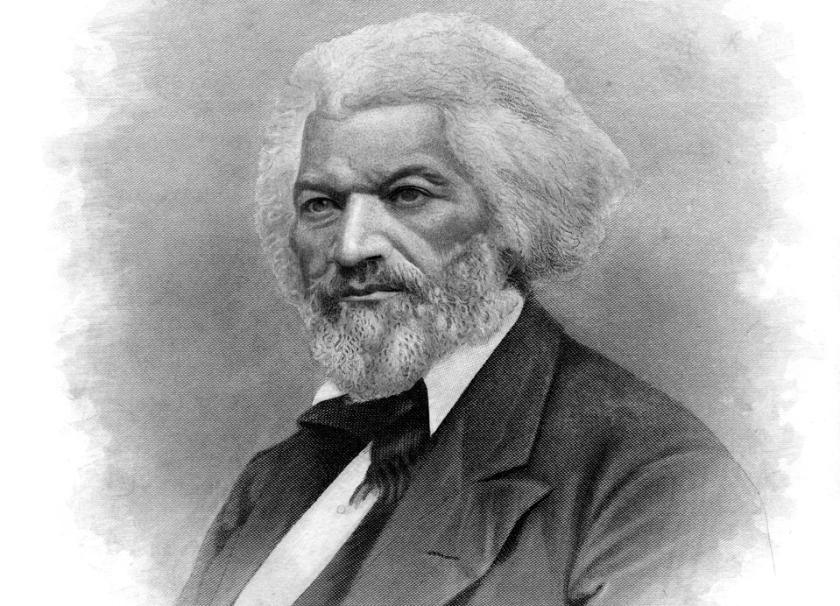
Frederick Douglass And Co-ops in 1846
When Douglass Came to Rochdale, England a Slave and Left a Free Man
By David J Thompson
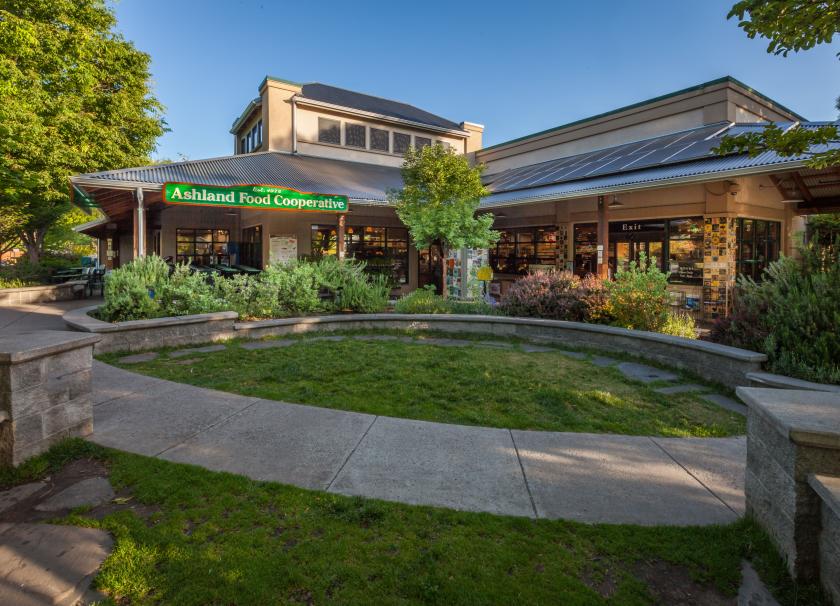
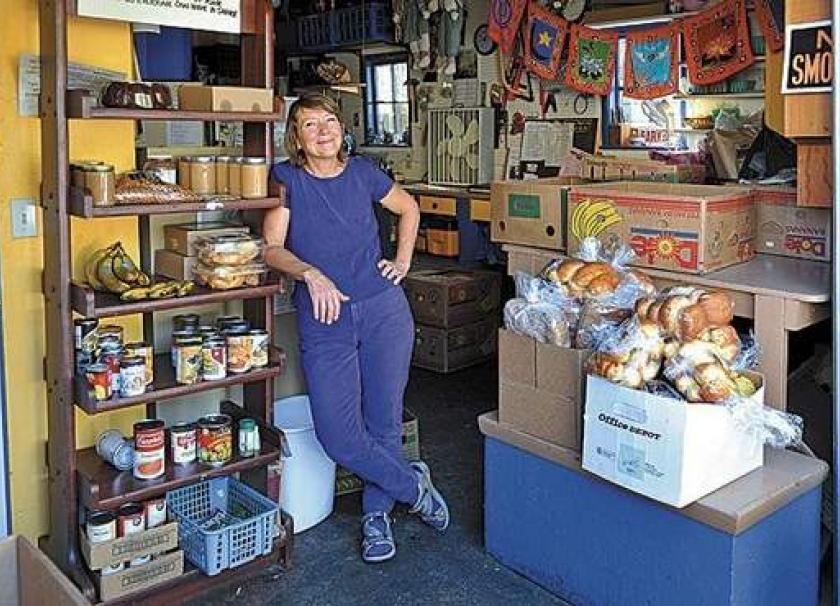
January Change for Good Partner: Ashland Food Angels
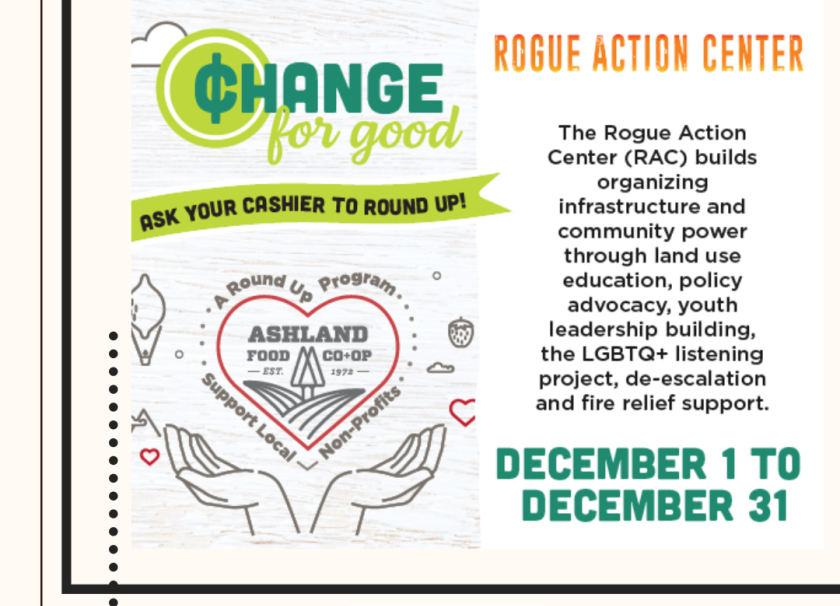
December Change for Good Partner: Rogue Action Center
December's Change for Good Partner is
Rogue Action Center
%20(1).png)
The Rogue Action Center (RAC) builds organizing infrastructure, leaders, and community power for a just, inclusive, and sustainable Southern Oregon for everyone.
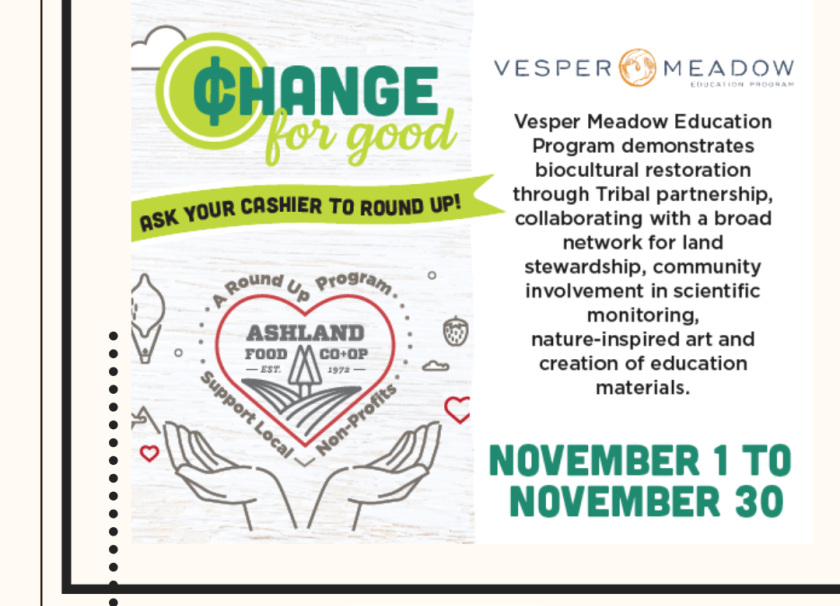
November Change for Good Partner: Vesper Meadow Education Program
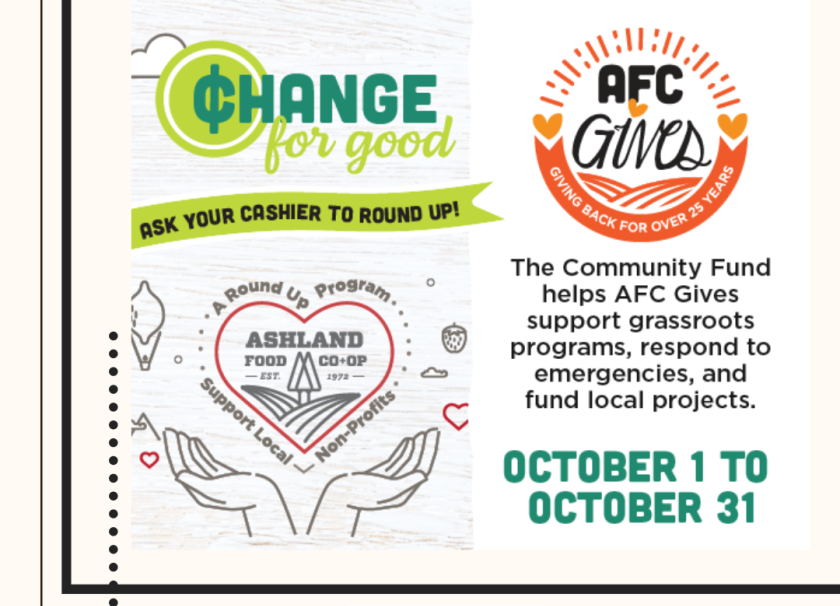
October Change for Good Partner: AFC Gives Community Fund
October's Change for Good Partner is
AFC Gives Community Fund
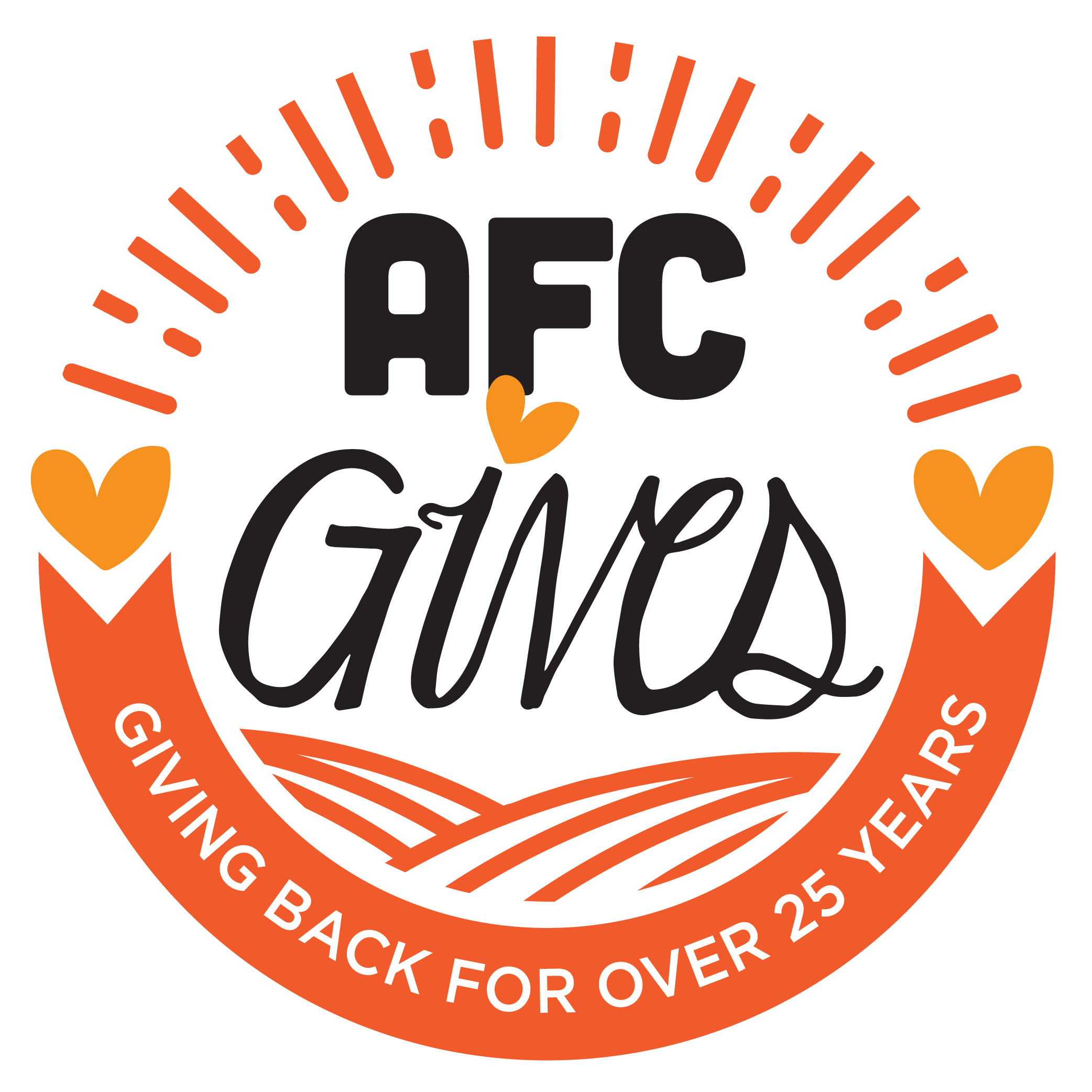
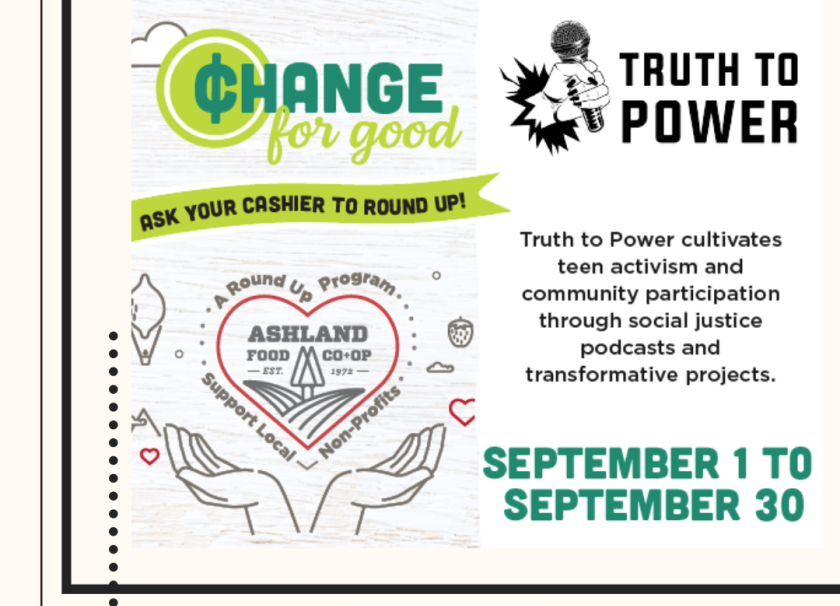
September Change for Good Partner: Truth to Power
September's Change for Good Partner is
Truth to Power
.png)
Truth to Power cultivates teen activism and community participation through social justice podcasts and transformative projects.

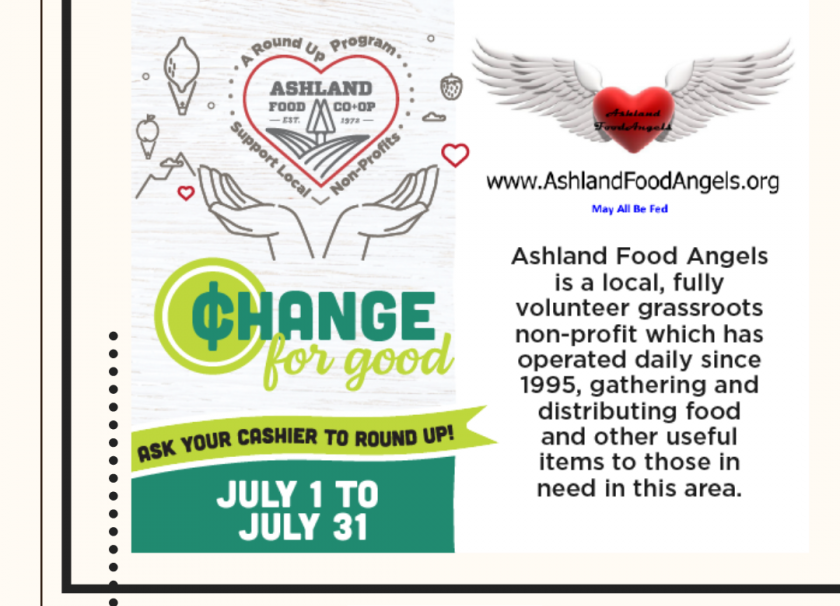


.png)
